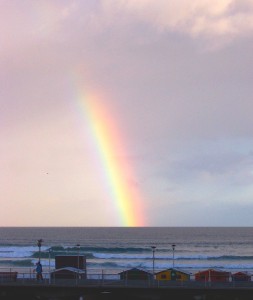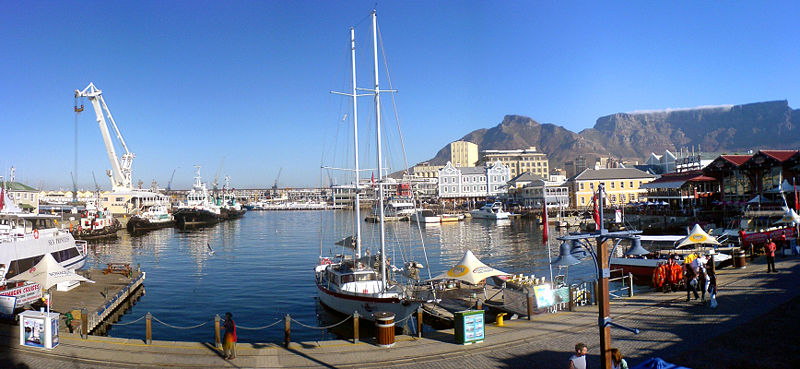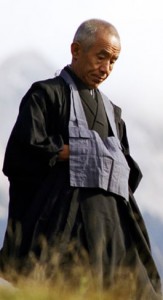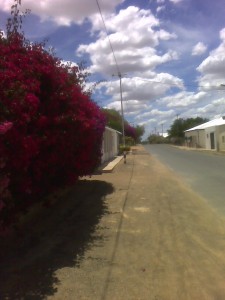Tuesday
Featured StoriesThe Immediacy and Immensity of Africa
Cynthia Kneen shares with the Shambhala Times vivid and insightful impressions during her travels in South Africa. Currently a guest of Shambhala Cape Town, she is teaching the Shambhala and Buddhadharma in South Africa for three months.
By Cynthia Kneen
Shambhala South Africa is a vibrant sangha, growing by leaps and bounds, under the inspired direction of Jennifer Woodhull, a native South African. To me, Jennifer is in the tradition of sudden female leaders, strong women like Alexandra David-Neel or Ani Tendzin Palmo, sturdy ladies with good, strong walking shoes, almost from another time, suddenly determined ladies who put on their walking shoes and said, “I’m setting off to meet the Buddha. I’m on an adventure. I have the strength. I’ll keep in touch. Bye, bye.” And they just launched themselves, and headed off for another continent. Jennifer gives impeccable dharma talks, and a strong group of meditators has formed around her. Her service is immense.
Meanwhile, I bask in a Mediterranean climate although winter is coming and it’s getting cold. I teach, struggle with internet connections, and take in the immediacy and immensity of Africa, its vigor, beauty, passions and anger. I was staying in an exclusive enclave for white people squished into a small space between Cape Town’s sudden bold mountain and the sea. Now, I’m staying right on the sea. The land here is beautiful, disorienting, partly due to a “false bay,” seemingly facing the wrong direction and in the wrong place, a bay that disoriented the old maritimers, too, and definitely me. Partly it’s the improbable mountains. All my directions are off. The waxing moon grows from the opposite side than it grows above the equator. This is surprisingly shocking to me. Differences like this impinge on my sensibility, and add up to an impression that’s strong, intangible, and hard to name.
Yesterday we walked with penguins toward the sea, these little guys right on our path, pushing past us to the bush. I had come from lunching on the veranda of a grand old teahouse saturated with Tibetan colors, fresh flowers, and Nepali art. Today a short reach away from me is a newspaper reporting on yet another story of wreckage, corruption, power over others, and violent divisions. Everything seems bold and strong to me. In an editorial a clearly articulate and refined white gentleman says, in closing, “and so, f—k off” to the politician he’s addressing. Right there in print! The country’s churning is palpable, in the 1990’s so much hope, and now a sense of hard work and heartbreak, almost alarm among some, that the tensions between those in power and the powerless will pull the entire collective back to harder times.
Next door Zimbabwe is an inspiration and a threat, depending on whom you talk to. As for me? I am a naive flower, slightly bruised, feeling what South Africa is but not knowing it, not seeing clearly, only sensing its beauty and the raw weight of its problems and promise. I ask which states in Africa are stable, and opinions vary. Yet I can’t remember the names they tell me anyway, or I struggle to know where these countries are. I am glad to be in contact with Shambhala Times, touched to meet the Shambhala Cape Town sangha, and grateful to experience things beyond the limits of myself.
Africa shouts out its imagery and sensuality, its beauty, history, joy and brutality, its newspapers full of tension and adjusting, life and death. Yesterday I met two white people who were activists during the freedom struggles in Zimbabwe and South Africa. The day before I met refugees who fled Zimbabwe with their horses and children, abandoning their tobacco plantation to a shift in power. The day before that a person of color told me she is more afraid now than during the apartheid years, because then there was more certainty, and less foreboding. And the day before that a young black man tried to teach me to say Xhosa with a click.
I am flooded with personal images and memories of death and life. When Kobun Chino Roshi died, he rushed into a lake to save his daughter who was drowning, and he died, too. When they found him, he was sitting upright under the water like the Zen master that he was, holding his little girl in his arms. At first I thought he rushed into the water, saw she had fully drowned, so he just sat down and held her to keep her company on her journey. This image is so powerful to me, him a Buddha sitting under the lake in Switzerland, holding his little girl. Upright, kind, immoveable.
Yet he left his family on the shore, without a father or husband. But what could he do? Either way he lost. How could he get it right? Now I think he didn’t sit down to help her. He just sat down. He just sat down in his own truth and held himself upright. This morning I think South Africa’s dilemma is like Roshi’s. How can one get it right?
In South Africa, I feel Roshi’s style of dharma everywhere. People are robust, strong, vigorous, edgy, seeming to me full of guts and tenderness, resilient, called out by the environment to be this way. There is potential for chaos any moment and a vigorous response. Visiting a white enclave, delicately crushed into a space between the blunt mountains and the sea, surrounded by beauty and risk, one lady said to me, “Of course, this isn’t really Africa Africa.” And another immediately harrumphed, “Of course this is Africa Africa!” Last night we doubled the number of people who came to weekly meditation. Jennifer gave a wonderful talk, which we then discussed. This morning I feel that Africa is earning the dharma through hard work of its mind and heart and history. Even the moon is vigorous here, growing or shrinking boldly every night, nothing graceful about it, just boom, full, pushing its side out into the sky, or boom, disappearing from sight. Even the moon here finds its dharma, and boom, it just sits down.
We see beauty in others, but how do we say, “Look! Can you see it? Can you see what that means, what that person or tradition is communicating?” How do we say, “Look in this way, soften your gaze, pull your mind in a little bit, rest right there, now do you see the beauty?” I’ve been teaching dharma here a lot, and this morning I’m feeling timid, reading the newspapers, feeling danger and promise everywhere. I have moved my living quarters to a safer place. “If you are sensible, my dear, there is no safer place than this!” my very British friend pronounces triumphantly, lending me her flat as she flies off to France.
Cape Town is disorienting. You think that you are facing south and it is north. You are sure that now you are facing north, and it is south instead. Mediterranean beauty is everywhere, and blunt mountains that rise up straight and bold, right next to where you stand. And the largest boldest one is almost mystical, because of its effect. It mesmerizes, and causes Cape Town to think twice or thrice about its reality. This mountain’s beauty and blunt power stop the mind. I don’t feel I understand the Cape Town mind, or South African culture, not even a glimmer, but I try.
The sense of history here is immediate, and the sense of history being made is very real. In the United States national history is politely removed, slightly vague, “Oh well, yes, there were indigenous peoples here. Yes, some kind of conflict happened. Oh it was big, and yes, we have our problems. Yes, we crushed these people over here, too. Yes, what a power grab that was.” But here? Who has power or is powerless is very direct, very new, very in your face, immigrants fleeing other conflicts on the continent, arriving in South Africa every day, and making history. Power, and who has it, is boldly proclaimed, taunted.
Yesterday’s newspaper reported officials urging black youth to have a spine, be willing to kill whites, like Nelson Mandela did. Activists of every kind are strong. Everything smoldering, the World Cup games about to begin. And I am about to go to Johannesburg, which is more vigorous, urban, alive, and I’m feeling timid. But the young people, and those who have left Cape Town for Johannesburg’s larger world, say ironically about Cape Town, “That f—g mountain, it was crushing me!” What crushes mesmerizes. This is a powerful continent, and we are at the southernmost tip. Soon the whales will come.





















Jun 6, 2010
Reply
Cynthia, I love your piece on South Africa, particularly your very apt comments on Cape Town. I am often saddened by South Africans living abroad who see it only as a ‘tragic place’ of sadness and violence…. so thank you for pointing out in such vivid detail its vibrancy, beauty and incredible energy.
Whenever I return to Cape Town after time abroad, it seems to be on steroids – the mountain, the sky, the people, the everything.
Anne
Jun 4, 2010
Reply
Cynthia: Thank you for your report. As you know, this country is my birthplace – a place of sadness, violence and unending uncertainty. Our Rigden weekend in Boulder was amazingly powerful and full of inspiration about the condition of the planet and the world. May your journey in that tragic place (full of many series of painful experiences under apartheid for me) bring the blessing of the lineage down and may your presence transform and brings others to dharma.
Best wishes and thank you for your courage.
Colin
Boulder Shambhala Center
Jun 4, 2010
Reply
Thank you for this piece ~ what a strong and kind mirror for the country and city I live in!